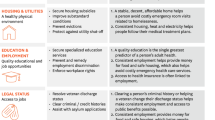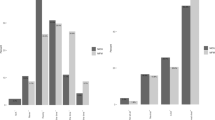Abstract
Objective:
Maternal–fetal medicine physicians (MFMp) and neonatal–perinatal medicine physicians (NPMp) caring for premature infants and their families are exposed to significant risk for malpractice actions. Effective communication practices have been implicated to decrease litigious intentions but the extent of miscommunication as a cause of legal action is essentially unknown in this population. Analysis of communication-related allegations (CRAs) may help toward improving patient care and physician–patient relationships as well as decrease litigation risks.
Study Design:
We retrospectively reviewed the Westlaw database, a primary online legal research resource used by United States lawyers and legal professionals, for malpractice cases against physicians involving premature infants. Inclusion criteria were: 22 to 36 weeks gestational age, cases related to peripartum events through infant discharge and follow-up, and legal records with detailed factual narratives.
Results:
The search yielded 736 legal records, of which 167 met full inclusion criteria. A CRA was identified in 29% (49/167) of included cases. MFMp and/or NPMp were named in 104 and 54 cases, respectively. CRAs were identified in 26% (27/104) and 35% (19/54) of MFMp- and NPMp-named cases, respectively, with a majority involving physician–family for both specialties (81% and 74%, respectively). Physician–family CRAs for MFMp and NPMp most often regarded lack of informed consent (50% and 57%, respectively), lack of full disclosure (41% and 29%, respectively) and lack of anticipatory guidance (36% and 21%, respectively).
Conclusions:
This study of a major legal database identifies CRAs as significant causes of legal action against MFMp and NPMp involved in the care of high-risk women and infants delivered preterm. Physicians should be especially vigilant with obtaining genuine informed consent and maintaining open communication with families.
This is a preview of subscription content, access via your institution
Access options
Subscribe to this journal
Receive 12 print issues and online access
$259.00 per year
only $21.58 per issue
Buy this article
- Purchase on Springer Link
- Instant access to full article PDF
Prices may be subject to local taxes which are calculated during checkout
Similar content being viewed by others
References
MacDonald M, Seshia M. Avery’s Neonatology: Pathophysiology and Management of the Newborn. 7th edn. Wolters Kluwer: Philadelphia, 2016, pp 1–6.
Donn SM . Medical liability, risk management, and the quality of health care. Semin Fetal Neonatal Med 2005; 10: 3–9.
Chandraharan E, Arulkumaran S . Medico-legal problems in obstetrics. Curr Obstet Gynaecol 2006; 16: 206–210.
Jena AB, Seabury S, Lakdawalla D, Chandra A . Malpractice risk according to physician specialty. N Engl J Med 2011; 365: 629–636.
Meadow W, Bell A, Lantos J . Physicians' experience with allegations of medical malpractice in the neonatal intensive care unit. Pediatrics 1997; 99: E10.
Studdert DM, Mello MM, Gawande AA, Gandhi TK, Kachalia A, Yoon C et al. Cases, errors, and compensation payments in medical malpractice litigation. N Engl J Med 2006; 354: 2024–2033.
Stelfox HT, Gandhi TK, Orav EJ, Gustafson ML . The relation of patient satisfaction with complaints against physicians and malpractice lawsuits. Am J Med 2005; 118: 1126–1133.
Hickson GB, Clayton EW, Entman SS, Miller CS, Githens PB, Whetten-Goldstein K et al. Obstetricians‘ prior malpractice experience and patients’ satisfaction with care. JAMA 1994; 272: 1583–1587.
Hickson GB, Federspiel CF, Pichert JW, Miller CS, Gauld-Jaeger J, Bost P . Patient complaints and malpractice risk. JAMA 2002; 287: 2951–2957.
Moore PJ, Adler NE, Robertson PA . Medical malpractice: the effect of doctor-patient relations on medical patient perceptions and malpractice intentions. West J Med 2000; 173: 244–250.
Lester GW, Smith SG . Listening and talking to patients. A remedy for malpracticesuits? West J Med 1993; 158: 268–272.
Hickson GB, Clayton EW, Githens PB, Sloan FA . Factors that prompted families to file medical malpractice cases following perinatal injuries. JAMA 1992; 267: 1359–1363.
DeTora AW, Cummings CL . Ethics and the law: practical applications in the neonatal intensive care unit. NeoReviews 2015; 16: e384–e392.
Cowan PJ . Litigation. Semin Fetal Neonatal Med 2005; 10: 11–21.
Physician Insurers Association of America, 2016. Available at https://www.piaa.us (accessed 8 August 2016).
National Practitioner Data Bank, 2016. Available at https://www.npdb.hrsa.gov (accessed 15 August 2016).
WestlawNext online legal research, available at http://legalsolutions.thomsonreuters.com/law-products/westlaw-legal-research (accessed 3 November 2015).
Annas GJ . Extremely preterm birth and parental authority to refuse treatment—the case of Sidney Miller. N Engl J Med 2004; 351: 2118–2123.
Hawdon JM, Beer J, Sharp D, Upton M NHS Improvement Patient Safety Programme ‘Reducing Term Admissions to Neonatal Units’. Neonatal hypoglycaemia: learning from cases. Arch Dis Childhood Fetal Neonatal Ed 2016; 102: F110–F115.
Nguyen J, Cascione M, Noori S . Analysis of lawsuits related to point-of-care ultrasonography in neonatology and pediatric subspecialties. J Perinatol 2016; 36: 784–786.
The American College of Obstetricians and Gynecologists. Committee Opinion No. 587: effective patient-physician communication. Obstet Gynecol 2014; 123: 389–393.
The American College of Obstetricians and Gynecologists. Committee Opinion No. 681: disclosure and discussion of adverse events. Obstet Gynecol 2016; 128: e257–e261.
Cummings J, Committee on Fetus and Newborn. Antenatal counseling regarding resuscitation and intensive care before 25 weeks of gestation. Pediatrics 2015; 136: 588–595.
Batton DG, Committee on Fetus and Newborn. Clinical report—antenatal counseling regarding resuscitation at an extremely low gestational age. Pediatrics 2009; 124: 422–427.
ACOG Committee on Ethics. ACOG Committee Opinion No. 439: informed consent. Obstet Gynecol 2009; 114: 401–408.
Cooke RWI . Good practice in consent. Semin Fetal Neonatal Med 2005; 10: 63–71.
Committee on Medical Liability and Risk Management; Council on Quality Improvement and Patient Safety. Disclosure of adverse events in pediatrics. Pediatrics 2016; 138: e20163215.
TeamSTEPPS®: Strategies & Tools to Enhance Performance and Patient Safety. Falls Church, VA: Dept. of Defense, TRICARE : Agency for Healthcare Research and Quality, 2010. Available at https://www.ahrq.gov/teamstepps/index.html (accessed 10 October 2016).
Author information
Authors and Affiliations
Corresponding author
Ethics declarations
Competing interests
The authors declare no conflict of interest.
Rights and permissions
About this article
Cite this article
Nguyen, J., Muniraman, H., Cascione, M. et al. Communication-related allegations against physicians caring for premature infants. J Perinatol 37, 1148–1152 (2017). https://doi.org/10.1038/jp.2017.113
Received:
Revised:
Accepted:
Published:
Issue Date:
DOI: https://doi.org/10.1038/jp.2017.113
This article is cited by
-
Extremely premature birth, informed written consent, and the Greek ideal of sophrosyne
Journal of Perinatology (2018)



